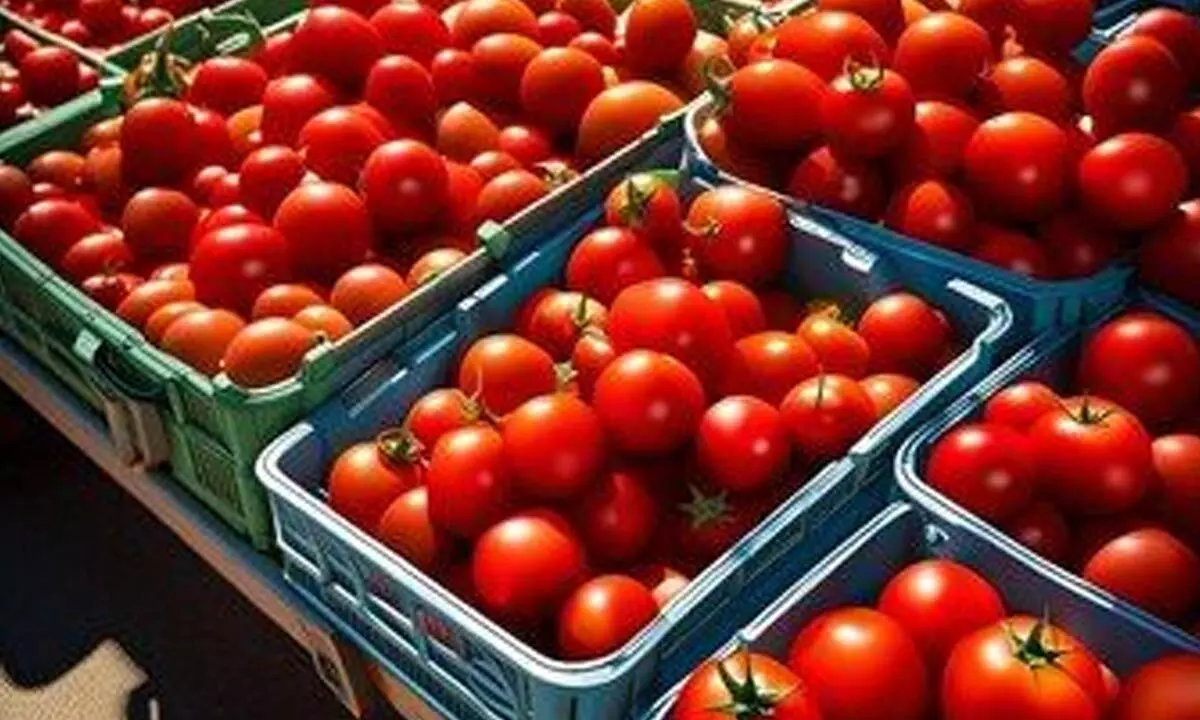Visakhapatnam: Tomatoes turn costly for common man

Tomatoes turn costlier for consumers
- As demand for vegetable goes up, supply thins in the market
- The cost of a kilo tomatoes is Rs 32 in Rythu Bazaars in the city
- The same is priced at Rs 50 in retail markets
Visakhapatnam: After onions that brought tears to the eyes, tomatoes take the turn as the vegetable’s cost increases in the market.
In a span of 10 days, tomato price jumps to Rs.32 from Rs.23 a kg as the supply to the markets gets affected. Currently, a kg of tomatoes cost Rs.32 in rythu bazaars and Rs.45 to Rs.50 a kilo in retail markets.
While Madanapalli remains to be the main supplier of tomatoes, local yields also play a part in meeting the demand of the vegetable. Tomatoes grown in Amrutapuram, Thavvavanipalem, Chintagatla, along with K Kotapadu and Anakapalli will be ready to arrive in the markets by December, informed marketing officials. “Until we receive the local crop, there will be fluctuations in the market,” explained Murali Krishna, Estate Officer of rythu bazaar at Ukkunagaram.
Following the tight supply in the market, tomato counters witness a huge queue in rythu bazaars. While there are few rythu bazaars that operate twice a day like the ones in Gopalapatnam, MVP Colony and Sithammadhara, the others operate only once a day. “There is a requirement of approximately 600 to 700 kilos of tomatoes per day in Rythu Bazaars that work twice a day. But in the ones that operate once a day, 200 kilos of tomatoes are normally required,” said K Varahalu, Estate Office of Rythu Bazaar at Marripalem.
Meanwhile, a kilo of onions cost Rs 48 in Rythu Bazaars, consumers get the same quantity for Rs 60 at open markets. “We need to shell out a minimum Rs.100 for a kg of onions and tomatoes. Basic kitchen staple turns out to be costlier these days. Hope the scenario changes soon,” said G Padmavathi, a resident of Seethammadhara.
As consumers make do with insufficient supply of tomatoes in the market at the moment, department officials expect a change in the situation in two weeks from now as the local crops start trickling in by then.














